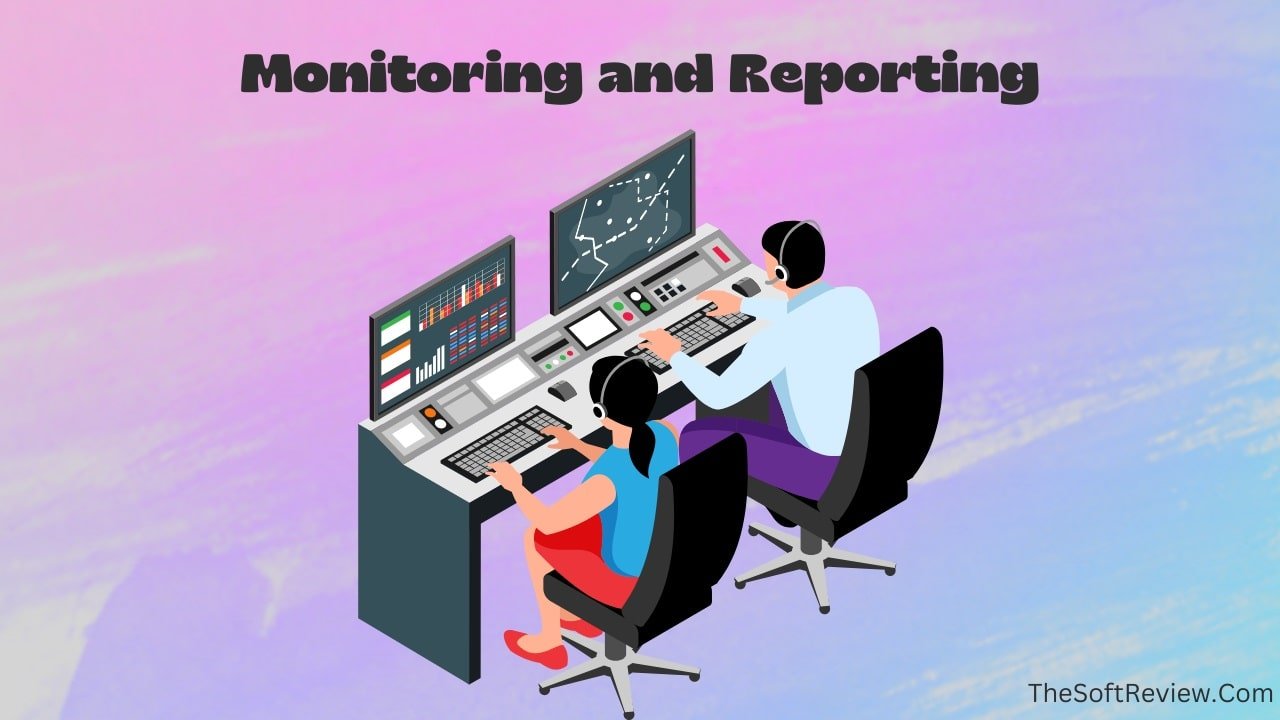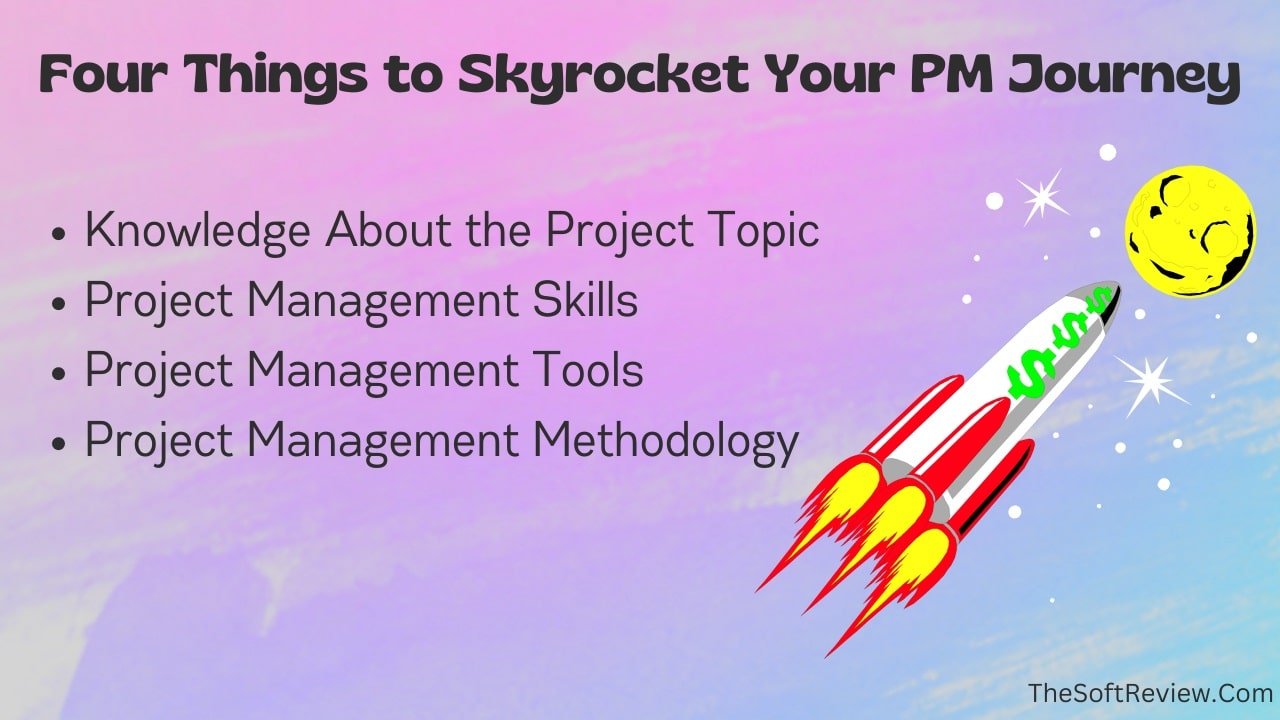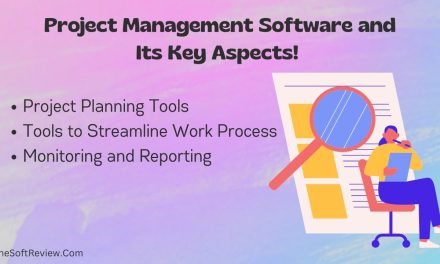
What Is Project Management? Uncovering the Key Aspects of PM

Do you know you are surrounded by projects and manage them daily? I bet you are! Whether you are a student or working as an accountant, you manage projects at different levels.
But, when the term “Project management” comes up, it seems intimidating at first glance, with all the processes, tools, and frameworks.
Not anymore! In this post, we will break down the core concepts of PM into small pieces so that you understand and manage your projects better.
Let’s start with the “project” and dive into its management!
What Is a Project? The Relationship Between Project and Operations
We can address a project as a business or individual’s endeavor to produce positive outcomes. The outcome can be a product, service, or improvement, but a project must have a definite start and end point.
For example, a construction project begins when the owner and the construction company sign a contract and ends once the work is finished.
Projects are different from operations. When a project has an ending, business operations are part of a long-term project, ongoing activities that involve repetitive processes that keep the business running.
For example, a mobile network company has 50 employees in their call center department who come into the office daily and provide customer service by responding to customer calls. It’s a repetitive task and so a project.
But, if the same company faces negative feedback for call dropping and plans some definite activities to reduce call drops and improve service, it would be a project.
Now with this understanding of a project, we are ready to dive into “project management” and its core aspects:
What Is Project Management and How does the Process Work?
Project management is the art of managing and efficiently achieving project goals. The process consists of five core aspects: initiation, planning, executing, monitoring, and closing. In simple terms, project management is the game of getting things done!
Presume you run a construction company; a client gives you the resources and assigns you to build a building in three months. If you put your brain and effort into finishing the construction within the time frame specified, you have completed the project.
Here is how a project management cycle work with its components:
1. Project Initiation

Project initiation is the first stage of the project management process. This phase involves developing different project ideas and selecting a better one. The project initiation phase also comprises the fundraising part of the project.
For example, a call center company wants to expand its services in new areas and reduce the number of call drops. In the project initiation stage, the company would ask for “project charters” (initial plan with estimated budget) from different employees to examine each idea and choose the best possible solution.
Once the company (stakeholders) finds an ideal solution, they lock it in as a project and approve the project charter for the planning stage.
2. Project Planning

The planning phase is the second and critical stage of project management. In this phase, the company/stakeholders appoint a project manager to craft a plan so that the project can be completed bringing the outcome.
This phase involves developing a detailed plan that outlines the requirements, scope, and objectives. Including these, creating an execution timeline, allocating the resources, addressing the potential risks, and setting up control systems to measure progress are the critical components of the planning.
The project planner must explain to the sponsor why he chose that solution and how he will execute his plan.
3. The Execution Part

The execution phase is the third part when a project manager starts to act according to the plan. Acts include hiring members, delegating tasks to team members, and managing resources, time, budget, and risks. Also, fine-tuning the project plan and communicating with the team members and stakeholders involved.
Execution is simple! You have created your plan and know how to implement it and complete the project
4. Monitoring, Controlling, and Reporting

Monitoring and controlling is an ongoing process in the project management cycle. It involves reviewing project performance against the plan, making necessary course corrections or changes, and taking corrective action where needed.
At the same time, this stage involves the communication and progress reporting part to the stakeholders.
5. Project Closing

The closing phase is the last stage of the project management cycle. The activities involve:
- Evaluating project performance
- Documenting lessons learned
- Archiving all relevant materials
- Handovering the project to its owner
These five core aspects of project management run a project management cycle. Now let’s take a look at the role of a project manager so that you can get a clear idea of the process:
What Exactly Does a Project Manager Do? 9 Key Responsibilities
As we know, after the project initiation phase, project managers are responsible for handling all the other four parts of a project: strategic planning, executing, controlling, and closing.
But to manage these four aspects, a project manager must go through several tasks and responsibilities. Here are the critical functions of a project manager that would help you get clarity on what project managers manage:
1. Project Planning
A project manager is responsible for project success by designing and executing a plan effectively. Planning responsibilities include setting realistic goals, allocating resources, identifying risks, hiring skillful members, and creating timelines for completion.
As a project manager is responsible for both the achievement and failure of the project, they take time to craft the plan and edit it as per the stakeholder’s wants (who finance the project). Once the manager gets his plan approved by the stakeholders, he starts his execution.
2. Resources Allocation
The execution part of a plan often starts with the resource allocation process. In this stage, a project manager gets the funding in his account and allocates the required materials, and hires skillful team members if needed.
3. Team Management
A project manager’s crucial responsibility is coordinating and managing the entire team working on a project. Team management tasks include-
- Managing human resources
- Dividing major tasks into small pieces
- Assigning the right tasks to the correct member
- Setting expectations
- Providing guidance and feedback
- Ensuring everyone follows the plan
4. Time management
Another critical responsibility of a project manager is to ensure that all tasks are completed on time. Some key responsibilities are setting attainable deadlines, tracking progress, and solving any issues that may arise with meeting those deadlines.
5. Budget Management
A project manager is also accountable for managing the expenditure of the project. In that case, a manager has to track every expense and ensure nothing is going out of the budget. It’s a sensitive task for a project manager because if he runs out of money in the early stage of execution, he could face problems with the stakeholders.
6. Change Management
No matter how solid your plan is, many changes could appear in team members, budget, or other aspects. But a project manager must be able to handle changes, such as changes in scope or resources. Change management involves assessing the impact of changes, communicating them to stakeholders, and adjusting plans accordingly.
7. Stakeholder Management
Project managers must also stay in touch with stakeholders throughout the project life cycle. The critical responsibility includes keeping the stakeholders informed about any decisions or actions taken during the project and managing a healthy relationship with them.
8. Risk management
A project manager needs to be a handful in monitoring any risks associated with a project and take corrective action to avoid unexpected issues or delays. Risk management involves anticipating potential roadblocks and developing contingency plans to address them.
For example, if a local mafia extorts money on a construction project, the manager must have the skills to deal with the issue and maintain the project’s progress.
9. Project Closure
Finally, a project manager is responsible for closing out the project. In this stage, a manager must measure the overall success against the objectives. The project closing tasks are to Hand over the outcome to the owners, accumulate the lessons learned, and ensure that all the equipment is appropriately returned to its sources.
Well, these are the key responsibilities that a project manager has to maintain for every project. Now let’s talk about why project management is vital for your organization. Then we will discuss how you can manage your projects efficiently.
What is Customer Relationship Management & How Does the Customer Lifecycle Work in CRM?
According to Team Stage, the success rate of a project increases up to 2.5 times with project management practices. Here is why:
1. Better Planning and Execution:
Project management allows organizations to plan, execute and analyze their projects systematically. It ensures that all tasks are completed on time, within budget, and according to the established guidelines and standards. And with a project management system, an organization can keep the plan and its execution!
2. Better Collaboration:
Project management helps ensure that all team members and stakeholders are informed of the project’s progress throughout its life cycle. It helps build trust between everyone involved in the project, which is essential for its success.
3. Increases Efficiency:
Project management helps organizations maximize efficiency by streamlining processes and procedures. It allows organizations to identify areas that need improvement, track progress and allocate resources accordingly. Eventually, it enables an organization to complete projects faster, make better decisions, and ensure successful outcomes.
In short, project management provides organizations with an efficient, effective, and organized way of managing projects. It allows them to maximize efficiency and ensure successful outcomes.
Now that we know why project management is essential for an organization let’s talk about how you can manage your projects effectively.
What Do You Need to Manage a Project Efficiently?

To manage your projects effectively, you need to establish clear objectives and define the scope of work that needs to be done. The following four steps would help:
A. Knowledge About the Project Topic
Before you start managing, you must clearly understand the project topic, along with the goals, timeline, and budget. For example, suppose you are willing to run a construction project. In that case, you must know the processes involved in constructing a road or building.
Adequate knowledge of the project topic will help you accurately plan each task and ensure everything is completed on time and within budget.
B. Project Management Skills
Project managers must possess specific skills, such as good communication, leadership, time management, critical thinking, and problem-solving. These skills enable a project manager to coordinate tasks effectively, stay organized, and identify any problems that may arise.
The great thing about these habitual skills is that we learn some of these skills in our childhood to some degree, and with time and practice, we can master project management skills. So to become a project manager, you must acquire project management knowledge and skills with practice.
C. Project Management Tools
You can use traditional project management approaches, like a pen and a notebook, which are efficient for mini offline projects.
But to be an effective project manager of complex projects, you will need some help to stay organized; that is where software systems come in, and you can use them to make your project management journey smooth.
The most common systems to manage complex projects include spreadsheets and project management software.
If you have a small project to complete online, you can use a spreadsheet like Google Sheets to manage your projects. Conversely, if you have a heavy workload with team members, you are better off using dedicated project management software.
D. Project Management Methodology
Project managers should also be familiar with different project management methodologies, such as Waterfall project management, Agile project management, etc. These project management techniques enable managers to plan and manage projects, track progress, and ensure successful outcomes.
You can read these top 6 project management methodologies and find one to help you stay organized.
Yet, a project manager must be ready to accept a new or hybrid project management methodology because every company has its own methods developed over time.
As a project manager, you better understand different project management methodologies and compare them with the company you are working for; this observation will help you find out the new scope of your project.
These are the four fundamentals you need to manage a project efficiently. Now let’s end this discussion with some beneficial tips to help you along the project management journey.
7 Tips For Successful Project Management Roles
When it comes to the practice of successful project management roles, the following guides help to achieve success in any project:
1. Be Clear with the Fundamentals
Knowing what you want to solve and how you will achieve that milestone is required. This understanding will help you identify the scope and risks during the project plan.
2. Self-Belief
Once you get approval for your plans, it’s your responsibility to execute them. However, life might seem gray while you’re completing your projects. But it would help if you believed you could achieve your objective, whatever comes up. If you don’t believe in your execution process, no one will. So, believe in yourself, learn lessons, and don’t stop.
3. Develop a Timeline and Be Flexible
A well-defined timeline is crucial when managing a project. Ensure that you ensure an achievable time frame for your plan so that tasks can be completed within the allotted time and goals are achieved. In addition, you must be flexible with your timeline; some tasks will need extra time and budget. Make sure that you prepare yourself to handle those events.
4. Establish roles and responsibilities.
Assigning the right tasks to the right team member is essential when delegating tasks. You must set each member’s role based on their skills and experience so they understand their responsibilities.
This awareness will help keep the project on track and ensure everyone knows their part in its success. And when you hire someone, find a team player with the required skills.
5. Set Clear Communication Protocols
Establishing a central way for all team members and stakeholders to stay in contact with each other throughout the project is essential.
A centralized communication system helps ensure everyone is on the same page, can provide feedback, access documents, and ask questions in an organized manner. You can use spreadsheets for a basic or project management software to establish extended communication.
6. Monitor Progress Regularly
It is essential to check in regularly on the progress of the project. You can check employees’ status, project timeline, and tasks to get an overview of your execution process. It aids in identifying potential issues that could cause delays or prevent the team from achieving its goal.
7. Track Resources
Tracking the resources used on a project is an integral part of successful project management. It ensures minimal costs and tasks are finished on time and within budget.
With these fundamentals of project management, you can ensure that your projects are completed on time and with ease.
Final Words
Project management is the systematic art of making a project successful. Understanding what project management is helps organizations maximize efficiency and make better decisions.
Thus, having a good grasp of the core aspects of project management is essential to crafting better plans, executing them, and bringing valuable outcomes.
And this discussion would help you be among the successful project management professionals.
Frequently Asked Questions
1. Should I Study Project Management?
Yes! If you are fascinated with a career in project management, studying project management would be worthwhile. Project management is an incredibly admired skill in all the industries, such as software development, and working professionals are expected to manage projects in some magnitude! A solid knowledge of project management can assist you in being more efficient in your role.
2. Where To Study Project Management?
You can attend a university, join an online course, follow a professional organization’s guidelines, or have in-person training to study project management based on your circumstances. However, instead of acquiring a university degree, it would be ideal to join an online course on Coursera.
You will get PM courses from big tech companies like Google, which would be less time-consuming and costly. You can also follow the guidelines of the Project Management Institute (PMI) to study project management.
3. Can project managers work remotely?
Not all project managers can work remotely. Instead, a project manager can only work remotely on online projects, such as software development projects that do not require a manager to be present in the workplace.
On the other hand, a manager of a manufacturing industry would not be able to work remotely because he must visit the factory to examine how workers are working.






















